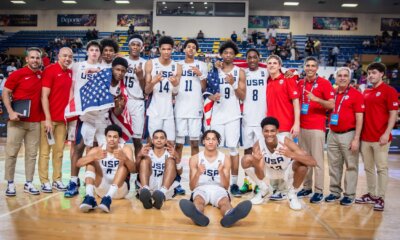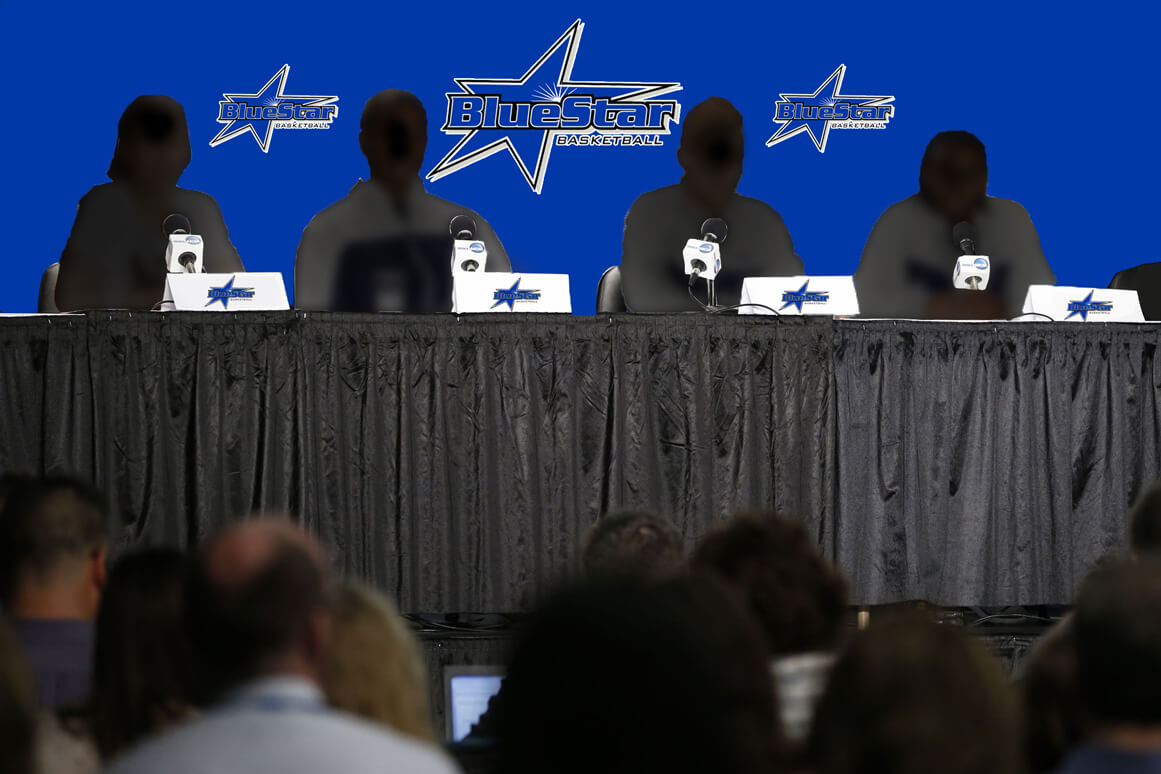In 1981, the NCAA voted to sponsor women’s sports, realizing a notion Walter Byers first developed nearly two decades before.
The longtime executive director of the NCAA, who died last week at the age of 93, doesn’t get much credit for any kind of clairvoyance about females and athletics.
But he should.
In the early 1960s, Byers sought to add women’s sports to the NCAA roster during his battles with the AAU over control of amateur athletics. He later encouraged women’s physical education leaders to form their own membership association, and they worked through that decade to create what became the Association for Intercollegiate Athletics for Women.
While women’s leaders were eternally suspicious of his motives, Byers would always be several steps ahead of them. Before Title IX was passed in 1972, Byers and NCAA legal staff were concerned that they might be vulnerable to challenges demanding that it offer women’s sports.
So as Byers, the NCAA and the lords of college football vigorously opposed Title IX sports regulations in the 1970s, he was preparing the way to finally bring women to the fold.
Byers has been especially reviled by some in the women’s sports community for that contentious 1981 convention in Miami Beach. (Our Mel Greenberg was there as the only credentialed journalist with deep knowledge of how the women’s side of the aisle operated.)
Some cried out that the 1981 vote was a “takeover,” a phrase amply relayed in the mainstream media. In “College Sports, Inc.,” one of his many screeds against the NCAA, critic Murray Sperber caustically subtitled a chapter about the 1981 vote as the “rape” of the AIAW.
In a Sunday column about Byers in The New York Times, former AIAW president and ex-Women’s Sports Foundation CEO Donna Lopiano repeated her oft-proclaimed, little-scrutinized claim that “women’s athletics was set back 10 years when they went to the N.C.A.A.”
But anyone who was seriously and honestly tracked developments in women’s college athletics since then understands that’s patently absurd.
Times columnist Bill Rhoden mentions only in passing, and not by name, the women who had been at internal war with Lopiano and other politically-charged AIAW leaders for years about how to best go about fighting for women athletes under Title IX.
I’ll name a couple of those women here, because former AIAW president Judith Holland and Barbara Hedges recently self-published a book of their remembrances of the 1981 vote, “Women’s Collegiate Sports: AIAW to NCAA.”
It’s a clear rejoinder to the party line, long espoused by Lopiano and company, that the NCAA was out to devour the AIAW against the will of women’s sports leaders. The truth is that women’s sports leaders, especially those within AIAW, were deeply divided among themselves.
What frustrated some women’s administrators were the regulations of the AIAW they felt placed female athletes at a disadvantage, compared to their male counterparts under the NCAA. With different sets of rules, they concluded, women athletes would never get their fair share.
As women’s sports, especially basketball, began to grow — the AIAW had a modest TV hoops contract — roiling debates raged within the AIAW about whether to fight the NCAA or join it.
Holland (UCLA) and Hedges (USC, Washington), were part of a group that became known as the “West Coast Women,” administrators mainly from that part of the country who thought the AIAW hierarchy had become too focused on politics — the AIAW was headquartered in Washington — and not enough on providing resources for women athletes.
Holland wrote that AIAW leadership:
“. . . had lost contact with the people who were in the trenches, the people who were doing all the work. . . . It was about opportunities for women athletes for me. That’s what we were doing, creating programs, national championships for women, and I think they lost sight of it.”
Some damning numbers were revealed in a 2004 book about the AIAW-NCAA wars, “Playing Nice and Losing.” Author Ying Wushanley dug through AIAW documents to discover that over the course of its 11-year history, the AIAW spent 20 percent of its total revenues on legal expenses, compared to only 8 percent on female athletes.
From 1979-1982, as the AIAW battled NCAA encroachment, legal expenses alone ran up to $569,000, a sum greater than the all-female organization ever spent on championships and other resources for female athletes ($315,000).
Coaches in women’s basketball felt hamstrung by AIAW regulations, especially the organization’s hostility to recruiting. In their book, Holland and Hedges examined the recruiting options for early-1980s female athletes Cheryl Miller and Jackie Joyner.
 Although Miller played under NCAA auspices, she was recruited during the AIAW age, which meant she and her family had to pay their own way to visit a school. She led USC to two NCAA basketball titles, and while her brother Reggie Miller also stayed close to home at UCLA, he was able to make long-distance visits to colleges paid for by the schools that she was not.
Although Miller played under NCAA auspices, she was recruited during the AIAW age, which meant she and her family had to pay their own way to visit a school. She led USC to two NCAA basketball titles, and while her brother Reggie Miller also stayed close to home at UCLA, he was able to make long-distance visits to colleges paid for by the schools that she was not.
Joyner came along a few years later, with NCAA rules enabling her to leave her home in East St. Louis, Ill., for an all-paid trip to UCLA, where she starred in hoops and track before winning Olympic gold in the heptathlon and recognition as one of the greatest female athletes of all time.
This is the dirty little truth that Lopiano has never acknowledged: that women administrators like her, trying to hold onto power with the antiquated philosophy of the AIAW, did more to set back women’s sports than Byers and the NCAA ever did.
As women’s athletics director at Texas, she never started a women’s softball program, although she’s a member of the Softball Hall of Fame. This didn’t happen until after she left for the Women’s Sports Foundation in the early 1990s.
While women athletes in softball and soccer at Texas had to sue on Title IX grounds for sports opportunities she didn’t provide, Lopiano found the time to lead the purge of an AIAW executive committee member, one of the “West Coast Women,” Linda Estes of New Mexico, for serving on an NCAA transition committee.
Not surprisingly, Estes said in the Holland/Hedges book that the demise of the AIAW was “perfect poetic justice. . . . I was happy to be rid of AIAW and head for the NCAA.”
You’ll never read things like that in The New York Times or espnW or USA Today or any other media outlet that typically serves up a one-sided, men-bad, women-good view of gender and sports.
Whatever you think of the world of college sports now, and how women’s athletics may fare, it’s hard to argue that female college athletes have not better off under NCAA auspices.
Byers — who married Ruth Berkey, the first NCAA director of women’s championships — doesn’t deserve all the credit for that, and his overall legacy is a mixed one that will be hotly debated for a long time.
But the real history of his contributions to women’s sports need to be placed in their proper context, beyond the repeated diatribes from those who simply lost a power battle, and can’t admit it.
Wendy Parker is a sportswriter and web editor who has covered women's basketball since the early 1990s. She is a correspondent for Basketball Times and formerly covered women's and college sports, soccer and the Olympics at The Atlanta Journal-Constitution. She is the author of "Beyond Title IX: The Cultural Laments of Women's Sports," available on Amazon, and the creator of Sports Biblio, a blog about sports books and history.

Latest Articles
-
Christopher Lawlor
/ 9 hours agoUSA Women’s U16 National Team throttles Venezuela, 113-52, at 2025 FIBA AmeriCup in opening pool game in Mexico
IRAPUATO, Mexico – The American tipped off in grand fashion on Monday, June 16....
-


Christopher Lawlor
/ 5 days agoNBPA Top 100 Camp moves venue but the top-notch talent, coaching still shines in South Carolina
ROCK HILL, S.C. — The National Basketball Players Association tipped off its annual elite...
-


Christopher Lawlor
/ 1 week agoUSA defeat Canada in FIBA U16 AmeriCup Final to lift the trophy for ninth time with a perfect mark; Nasir Anderson earns Most Valuable Player
CIUDAD JUAREZ, Mexico – The FIBA U16 AmeriCup 2025 throne has the United States’...
-
Christopher Lawlor
/ 1 week agoSPEARHEADED: Americans crush Brazil by 79 points at FIBA U16 AmeriCup quarterfinals; Marcus Spears Jr. puts up 16 points and 9 rebounds
JUAREZ, Mexico — The USA men passed its first test in the knockout stage...



